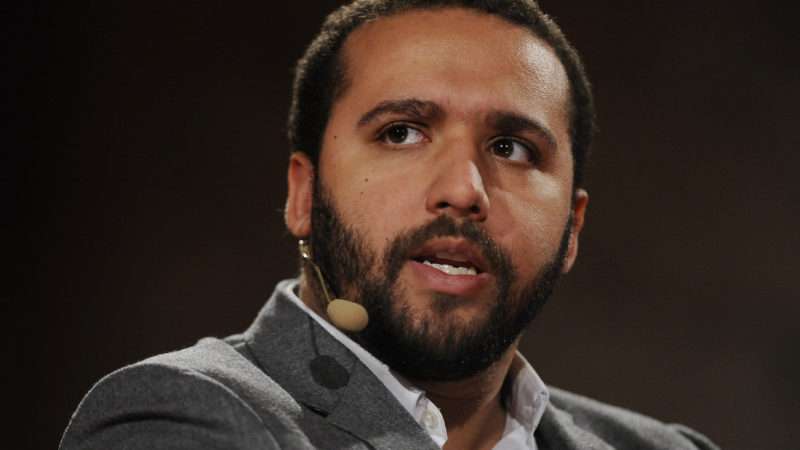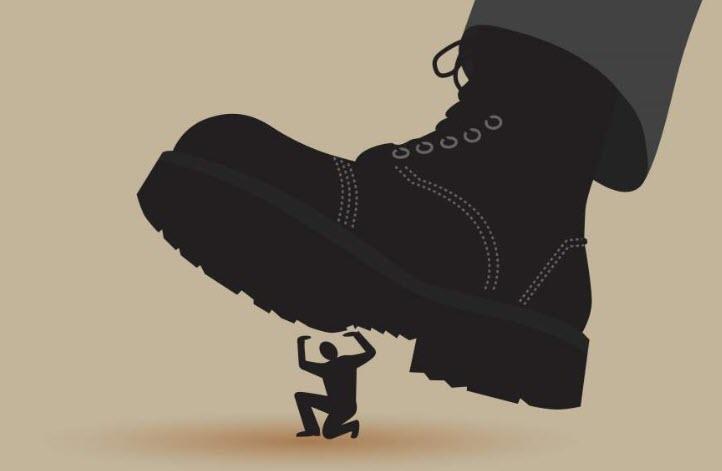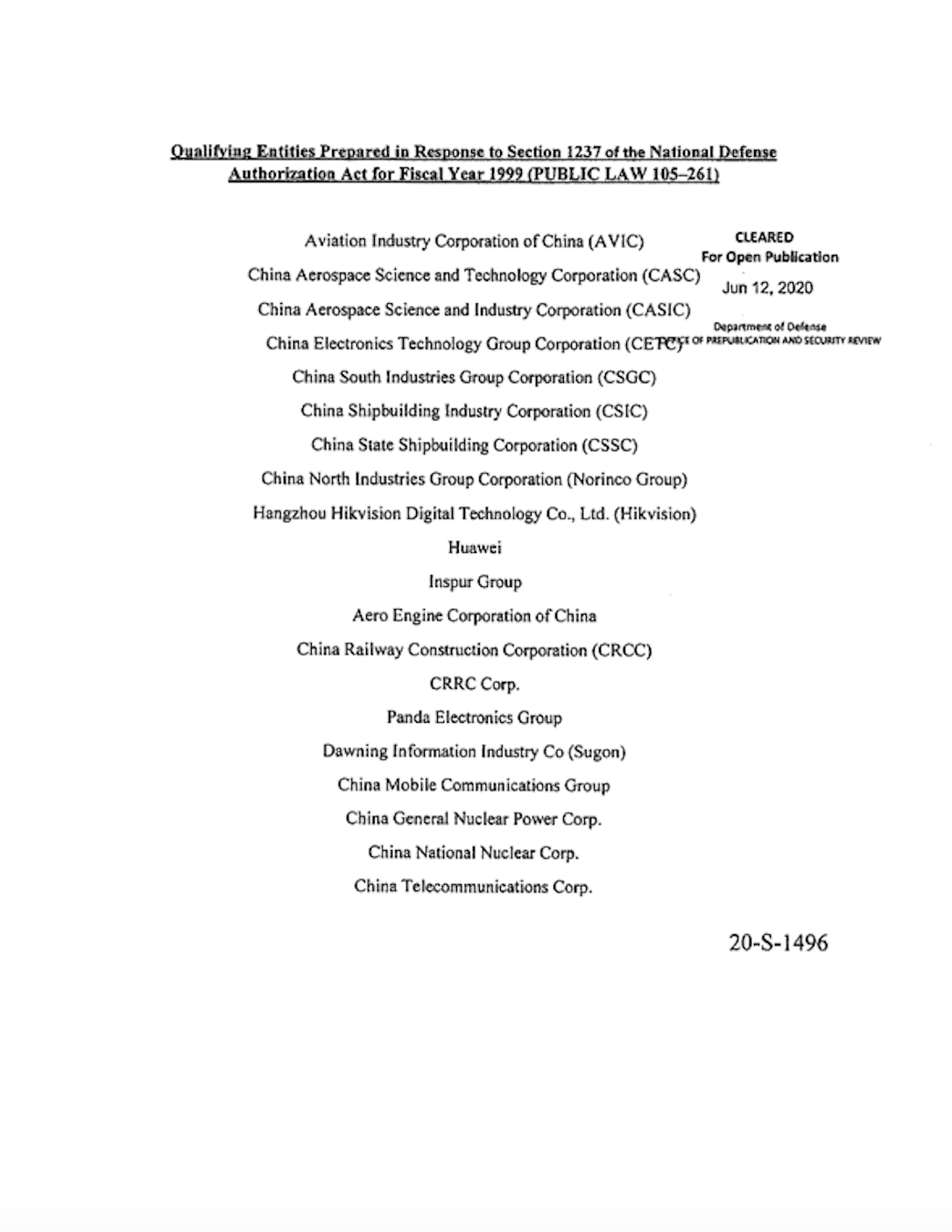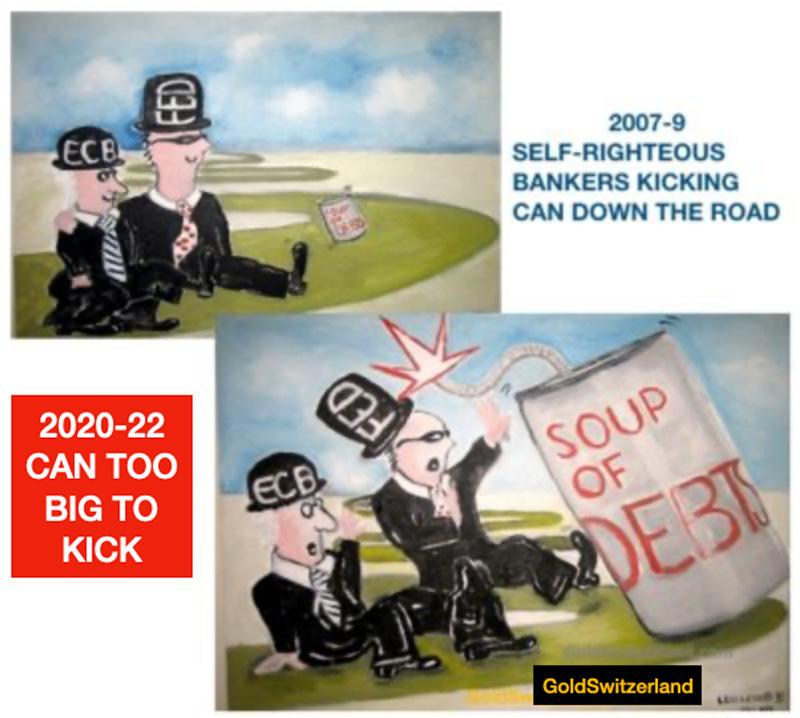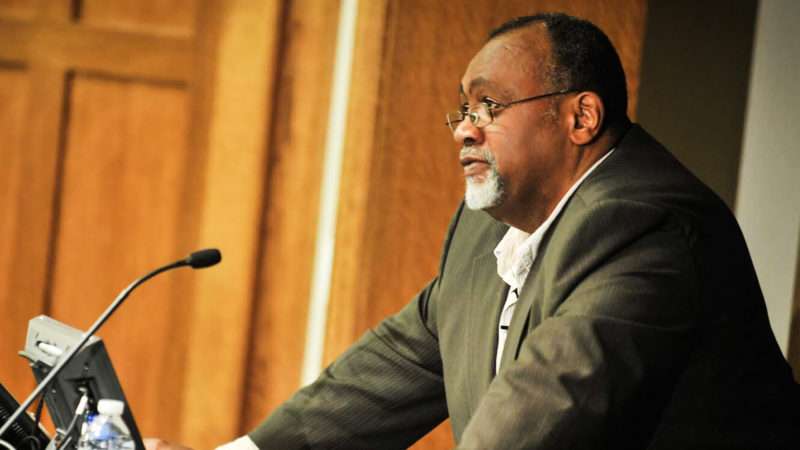Wesley Lowery, a Pulitzer-prize-winning correspondent for the 60 Minutes offshoot 60 in 6, has the latest and perhaps loudest in a recent series of think-pieces extolling the virtues of newsroom revolts such as the one that erupted at The New York Times earlier this month after its opinion pages published a controversial piece by Sen. Tom Cotton (R – Ark.).
Lowery and his industry allies contend that the national tumult stemming from the police killing of George Floyd is a prime opportunity to overhaul journalism’s very mission statement. “Neutral objectivity” as an aspiration, he argues in a Times essay, has failed, and should be replaced by “moral clarity.”
“Moral clarity would insist that politicians who traffic in racist stereotypes and tropes—however cleverly—be labeled such with clear language and unburied evidence,” Lowery writes. “Racism, as we know, is not about what lies in the depths of a human’s heart. It is about word and deed. And a more aggressive commitment to truth from the press would empower our industry to finally admit that.”
This proposed objectivity-for-morality swap is gaining momentum in the spaces where professional journalists congregate, pontificate, and/or swarm on Twitter to get senior managers fired.
Newsrooms “are really struggling to cover…in a way that appears to be nonpartisan a kind of political landscape where one political party in many ways has gone rogue and is not following the rules,” the Times’ Pulitzer-Prize-winning Nikole Hannah-Jones said on CNN’s Reliable Sources after the Cotton flap, in which she was a driving figure. “This adherence to even-handedness, both-sidesism, the View from Nowhere, doesn’t actually work in the political circumstances that we’re in.”
Relying on the creaky tools of liberalism in the era of Donald Trump, the new argument goes, is like bringing a banana to a knife fight.
“Can the view-from-nowhere, tabula rasa, Objective Unbiased Journalism tradition survive the current moment?” Esquire Politics Editor Jack Holmes mused recently. “Is it capable of dealing with bad-faith actors, and of prioritizing the truth over concerns about accusations of bias? Can we psychically handle the task of saying one of our political parties has lost its mind, or will we Both Sides ourselves into oblivion?…[H]ow much bullshit can any one person stomach—and spread—in the interest of ‘norms’?”
For non-journalists, understanding this rapidly spreading sentiment (and the repetitive, in-group jargon that comes with it) is a key to basic media literacy. The institutional stuff you read, watch, and listen to will increasingly be shaped by people whose moral warning systems are on ever-higher alert to make sure valued “platforms” remain unsullied—and unmanipulated—by barbarians.
“Cotton’s views should be known, but not amplified and normalized within the prized real estate that is the op-ed page of the New York Times,” wrote influential Washington Post media columnist Margaret Sullivan earlier this month. “What if we framed coverage with this question at the forefront: What journalism best serves the real interests of American citizens? Make decisions with that in mind, and at least some of the knotty problems get smoothed out.”
There is an obvious paradox at the heart of this project, one that is all the more glaring for passing undetected under the noses of its most prominent practitioners. In replacing their decidedly strawman version of the “objectivity” ideal with a more courageous “moral clarity,” journalists are trading the unattainable for the unknowable, and consciously elevating narrative “truths” over verified facts.
Wesley Lowery wants journalists to be unshackled so that they can positively identify individuals and organizations as “racist,” adding that: “Racism, as we know, is not about what lies in the depths of a human’s heart. It is about word and deed.” But there’s a wide swath of hotly contested territory within just that four-letter word deed.
Do policies, rules, and practices that correlate with comparatively poor outcomes among people of historically discriminated-against racial (or gender, or sexual, or national) classifications count automatically as racist, regardless of intent? You certainly hear that argument in New York City about public-school admissions criteria, for example:
But if that’s the standard then intellectual consistency requires it also be tested out on the War on Poverty, minimum wage laws, gun control, and—yes—the removal of public-school admissions criteria. The point here is neither to play racism gotcha nor argue ad absurdum that it’s fruitless to worry over unequal outcomes: it’s to observe that these assessments are very much under dispute, and rightly so. Difficult questions do not suddenly get “smoothed out” by the bold assertion that they belong to a binary category marked either “moral” or “immoral.”
A classic pitfall of such simplistic thinking, widely unremembered now on the journalistic left, is the presumption that a proposal born in moral virtue will retain its luster after coming in contact with the real world. Policy—particularly the thorny, emotional, life-and-death stuff like immigration, criminal justice, and war—is hard, with the wreckage of unintended consequences all around us.
Margaret Sullivan in her piece asserts that, “It’s more than acceptable that [journalists] should stand up for civil rights—for press rights, for racial justice, for gender equity and against economic inequality.” I agree! But these issues are not on-off switches, nor should their depiction be in the press.
Do “civil rights” include the individual right to keep and bear arms, or to grow your own medical marijuana for personal consumption? Do “press rights” include an extra “journalist privilege“? Does “gender equity” require government intervention to mandate wage levels? Does “economic equality” mean that an “ultra-millionaire tax” is a good idea? These are all heavily contested questions, not dividing lines between the virtuous and the deplorable.
You do not have to share the foundational anti-media animus of modern conservatism to guess from where the future errors of a newly emboldened journalism class will emanate. Wherever there is a preponderance of ideological sympathy—say, toward the cause of erasing the gender gap—there will be an abundance of journalistic sloppiness. Wherever there is a broad ideological or personal revulsion toward a person or group or class, there will be actual malfeasance.
Evidentiary standards, particularly as concerns the most radioactive of contemporary accusations—racism—threaten to become so one-sided that only journalists could fail to notice the double standard. Media critics have spent so long on the lookout for opportunistic conservatives “working the refs” that they have become slow to recognize the tactic when it comes from the left.
In Lowery’s essay, he declaims Tom Cotton’s op-ed as being “beneath” the paper’s “standards,” due in part to its “inflammatory rhetoric,” “overstatements,” and “unsubstantiated assertions.” Lowery also makes such arguably inflammatory unsubstantiated assertions as:
* “The views and inclinations of whiteness are accepted as the objective neutral.”
* “[S]elective truths have been calibrated to avoid offending the sensibilities of white readers.”
* “Black journalists are speaking out because one of the nation’s major political parties and the current presidential administration are providing refuge to white supremacist rhetoric and policies, and our industry’s gatekeepers are preoccupied with seeming balanced, even ordering up glossy profiles of complicit actors.”
* “The turmoil at The Times and the simultaneous eruptions inside other newsrooms across the country are the predictable results of the mainstream media’s labored refusal to racially integrate.”
* “[I]t remains to be seen if the changes at The Times will include aggressively tackling a culture that leaves its own staff members so internally powerless that they have to battle their own publication in public.”
Even if all these statements are 100 percent accurate (which I doubt), they are not substantiated, nor given anything like the post-facto scrutiny applied to a single 700-word piece by a sitting U.S. senator. (The same day that the Gray Lady’s staff was melting down over Cotton’s allegedly harmful words, the paper published an op-ed encouraging people to tell their relatives and loved ones that “you will not be visiting them or answering phone calls until they take significant action in supporting black lives either through protest or financial contributions.”)
Times staffers will explode in public vitriol when presented with an utterly inoffensive Twitter recommendation from controversial Opinion staffer Bari Weiss, yet mostly sit on their hands when Nikole Hannah-Jones encourages people to read conspiratorial claptrap about possibly racist fireworks campaigns. More productive energy will continue to be spent policing the paper’s not-quite-anti-Trump-enough headlines and tweets than will for the same treatment of every elected Democrat combined. You don’t need a map to see the direction this all is heading.
“I fear a new misunderstanding is taking root in newsrooms today, one [that] could destroy the already weakened system of journalism,” wrote media historian Tom Rosenstiel, in a long and worthwhile Twitter thread in response to Lowery’s piece (which he praised repeatedly). “That misunderstanding is the idea that if we adopt subjectivity to replace a misunderstood concept of objectivity, we will have magically arrived at truth—that anything I am passionate about and believe deeply is a kind of real truth….If [moral clarity] invites people to think that simply opining is some kind of truer or more moral form of reporting, they would be wrong and the effect would be tragic. If journalists replace a flawed understanding of objectivity by taking refuge in subjectivity and think their opinions have more moral integrity than genuine inquiry, journalism will be lost.”
Lowery, who has done valuable work covering the criminal justice system, makes several good points in his op-ed about media bias and grotesque euphemism when it comes to portraying the perspective of those in power, particularly the police. There is, I think, an obvious truth in the critiques that elite journalism spent a half-century abandoning and alienating itself from entire communities, and overly fretting about giving off the surface appearance of bias.
But by my lights, that half-century ended around 2010 or so. An oddness about this contemporary journalistic discussion is that it largely carries on as if the past decade of industry navel-gazing and industry transformation hadn’t taken place. Ten years ago the Washington Post was agonizing over having hired a young (formerly of Reason!) political writer who was subsequently discovered to have said intemperate things about some conservatives. Now, David Weigel works comfortably at…the Washington Post.
Fifteen years ago, we were arguing about whether cable news should have an openly left-leaning network; now, it’s over which one has the sassiest chyrons. “False balance,” “View from Nowhere,” “both-sidesism,” “working the refs” … all of these notions were being vigorously debated among media observers and participants during the administration of President George W. Bush.
Meanwhile, Facebook launched in 2004, YouTube in 2005, Twitter in 2006, and the iPhone in 2007, combining to form the mother of all workarounds to legacy media inattention. As Peter Suderman recently put it, “We Filmed Cops. People Changed Their Minds.”
The genius of American media, from the penny daily to the illustrated monthly, national newsweekly to local alt-weekly, broadcaster to blogger, TED talker to podcaster, is that every new establishment quickly creates its own vibrant alternative. The emerging new establishment, busy overhauling a newsroom near you, is about to discover just how popular their interpretation of moral clarity is.
from Latest – Reason.com https://ift.tt/2CyvKsV
via IFTTT
